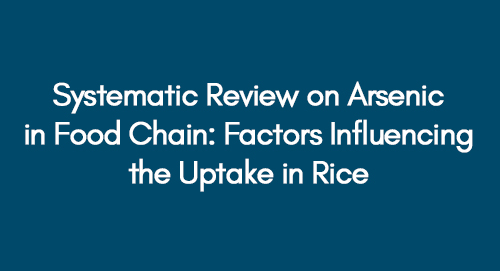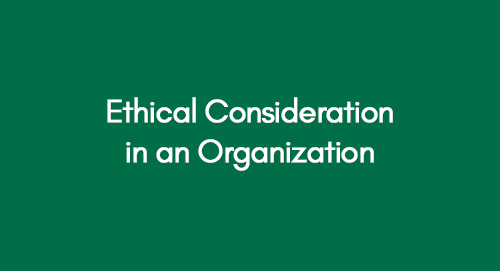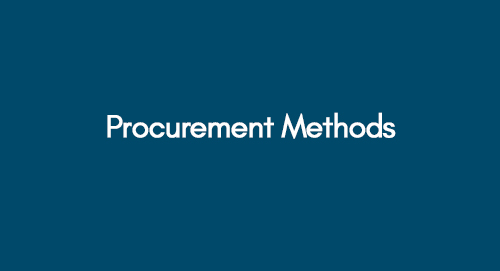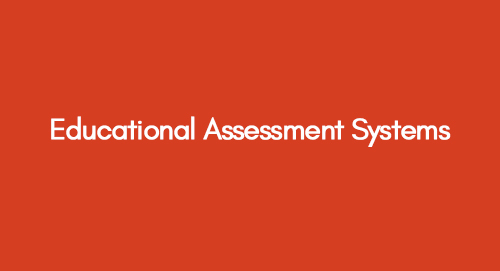
Systematic Review on Arsenic in Food Chain: Factors Influencing the Uptake in Rice
June 16, 2022
Research Question: What is the Experience of ‘Coming Out’?
July 6, 2022In the complex landscape of organizational dynamics, ethical considerations serve as the compass, guiding decisions with the magnetic force of trust, transparency, and unwavering integrity.
Ethical considerations are the moral compass guiding every aspect of an organization's existence. They have a profound impact on its culture, reputation, and interactions with stakeholders. Ethical practices are not a mere luxury; they are a fundamental and indispensable component for achieving enduring success. In this blog, we will emphasize the importance of ethical considerations within an organization and delve into strategies for nurturing an ethical environment.
Explore More About Ethical Consideration
In the realm of business, ethics are the guiding principles that dictate how an organization conducts itself, treating both its internal and external constituents with fairness and integrity. This commitment to ethical conduct underpins an organization's culture, influences its standing in the eyes of the public, and forges robust relationships with stakeholders. Ethical practices transcend the boundaries of a "nice to have" and take on the role of an imperative foundation for long-term sustainability and prosperity. In the subsequent sections, we will explore the pivotal role of ethical considerations in organizational success and provide insights into cultivating and preserving an ethical organizational landscape.
Ethical Issues
Johnson and Johnson, once heralded for its swift and responsible actions in the face of the 1982 Tylenol cyanide poisoning incident, has encountered a stark contrast in recent years. The company's Consumer Goods Business division has faced criticism for its slow and inadequate responses to a series of ongoing issues, particularly relating to deficiencies in quality control within certain manufacturing facilities. Additionally, concerns have arisen over the tardiness and ineffectiveness of corrective measures taken by the FDA. This regrettable chain of events has eroded trust among customers and inflicted substantial damage on the company's reputation. The allegations suggest that Johnson and Johnson failed to address quality assurance problems promptly and did not adequately engage with customer and patient feedback concerning product defects. As a result, the organization is embroiled in serious ethical quandaries encompassing honesty, trustworthiness, respect, and responsibility – all of which it is accused of transgressing through malpractice.
In a more recent development, the company has come under harsh scrutiny due to lawsuits filed against it, alleging that Johnson and Johnson played a significant role in the opioid crisis in the United States. The corporation stands accused of aggressively promoting opioid usage among its customers, a practice that severely breached their trust. Furthermore, it is alleged that the company engaged in irresponsible corporate conduct by marketing drugs that lacked FDA approval as safe. These incidents have overshadowed the company's reputation and ethical standing (Chris McGreal, 2019).
Role of Business in Society
The organization is presently grappling with severe consequences resulting from its past unethical conduct. The pharmaceutical company's involvement in a deceptive and hazardous advertising campaign is particularly troubling, as it is believed to have contributed to an estimated 6,000 deaths in Oklahoma since 2000, exacerbating the opioid crisis in America. Subsequently, an Oklahoma court passed a verdict against the drug industry, compelling the organization to pay $572 million for its role in fueling the opioid crisis in the state (Guardian, 2019).
The organization's impact extends beyond the United States, as it has also played a role in normalizing the use of opioids internationally, notably in countries such as the UK and India. In England, the proliferation of prescription drugs, a significant concern for healthcare authorities, has led to hundreds of thousands of people becoming dependent on them. Astonishingly, between 2017 and 2018, a staggering 5.6 million individuals were prescribed opioid painkillers (Nick Triggle, 2019).
Moreover, after enduring decades of pressure, the Indian Government relaxed its prescription drug regulations, creating an opportunity for major players like Johnson and Johnson to potentially exploit the system by promoting opioid drugs to consumers in India (Sarah Varney, 2019). Consequently, the ethical lapses have had a far-reaching impact, affecting people in various parts of the world and contributing to a significant upsurge in the global opioid epidemic.
Five Stakeholders
A company is deeply intertwined with human elements, and its mission extends beyond mere profit maximization. It calls for imbuing capitalism with a sense of purpose, recognizing that a business primarily revolves around intention and value creation for customers, with financial prosperity as a subsequent outcome (Freeman, 2014). The stakeholder theory, at its core, underscores that an organization represents a convergence of interests from both internal and external stakeholders. These stakeholders collaborate to advance organizational objectives while concurrently furthering their interests (Crane and Matten, 2016:59). This underscores the pivotal role of stakeholders within an organization.
Among the most influential stakeholders affiliated with Johnson and Johnson, pivotal categories encompass patients, the healthcare industry, the FDA, shareholders, the company's dedicated staff, and its executive team, along with the board of directors. As articulated by Johnson and Johnson (2017), the organization emphasizes that each category of stakeholders holds a significant role in contributing to the broader welfare of society. These stakeholders collectively drive the organization forward, with patients serving as the primary consumers who consistently generate revenue. The healthcare industry provides the necessary backdrop for the organization's operations, while the FDA diligently regulates the quality and safety of the organization's products, safeguarding consumer interests. Internally, the organization thrives through the commitment of its employees, the guidance of its executives, the support of its shareholders, and the oversight of its board of directors. Together, these stakeholders orchestrate the harmonious functioning of the organization, underscoring the critical importance of safeguarding their interests for the continued success of Johnson and Johnson.
Regrettably, the organization's unethical practices have adversely affected its stakeholders. The company's renowned 'Our credo'-oriented business philosophy failed to shield these stakeholders from substandard products and questionable marketing endeavours (Stewart and Paine, 2012).
Consumers, integral stakeholders in any organization, play a pivotal role in shaping its operations. Organizations aspire to offer their customers the highest quality services while respecting the principles of consumer rights. This entails upholding consumer autonomy and acknowledging that manufacturers have a duty to treat consumers as ends in themselves rather than a mere means to an end product. In the context of Johnson and Johnson, the patients and the healthcare industry have borne the brunt of the organization's irresponsible corporate conduct. This conduct involved the promotion of opioids in the form of painkillers without adequate research or FDA approval, and it has adversely impacted an estimated 400,000 lives (Chris McGreal, 2019). The internal shareholders of the organization have also suffered financial losses due to multiple lawsuits initiated by the victims' families. As a result of the court's ruling, which mandated the organization to pay $572 million for its role in the Oklahoma opioid crisis, the financial well-being of stakeholders within the organization has been significantly compromised (Guardian, 2019). This financial turmoil can potentially affect the job security of the organization's employees, who are also integral stakeholders, given the current crisis precipitated by unethical practices.
Examples of Good and Bad Ethics
The code of ethics is a vital element governing an organization's interactions with its consumers and suppliers. These codes, along with professional guidelines, offer a structured set of principles that an organization must adhere to to nurture positive relationships with its stakeholders.
Similar ethical dilemmas have emerged in the practices of other organizations within the market. For instance, in 2016, Mylan Laboratories hiked the price of their EpiPens by nearly 600% within a decade in the United States. This move elicited strong criticism from consumers, but the company chose not to adjust its pricing. Instead, the organization's CEO defended the high price point by asserting that a significant portion of the profits was reinvested in research (Andreas, 2017). However, healthcare experts pointed out that the drug administered through the EpiPen remained the same anti-allergic medication that had been in use for over a decade. In 2017, the organization reached a $465 million settlement with the U.S. Justice Department (CNBC, 2017).
Conversely, some organizations have developed robust strategies to prioritise ethical considerations in their operational conduct. One example is Toms, an American brand renowned for producing footwear and related products. This organization places a strong emphasis on ethical considerations that permeate its entire business model, including its marketing strategy (Goworek, 2016). Toms has diversified its activities by incorporating clean water initiatives through its coffee business and by funding projects aimed at enhancing access to birth kits for expectant mothers in developing nations. This effective, ethical approach not only safeguards the interests of the organization's stakeholders but also upholds the company's reputation (Goworek, 2016).
Recommendations
Organizations wield substantial influence in society. They are pivotal components within the societal and physical landscapes, significantly shaping individuals' decision-making processes, the resources available to support these choices, and the workplace factors impacting their well-being. These entities offer valuable services to customers while concurrently safeguarding the interests of the various stakeholders intertwined with the organization. It is imperative for organizations to reassess their strategic planning, embedding ethical considerations to cultivate trust among both internal and external stakeholders, thereby establishing a favourable reputation in the market. Upholding ethical practices within an organization is crucial to protect the interests of all stakeholders.
To regain the trust of their stakeholders, organizations must confront consumer concerns, ensuring rigorous quality control measures to provide high-quality services and products. Implementing training programs for employees can be instrumental in fostering these transformative changes across the entire organization. Moreover, organizations can introduce incentive programs to motivate internal stakeholders and boost productivity. Given the pivotal role held by stakeholders in an organization's success, effectively safeguarding their interests becomes paramount for all organizations.
References
Andreas Kanaris Miyashiro., 2017. Mylan’s EpiPen Pricing Scandal [online] https://sevenpillarsinstitute.org/mylans-epipen-pricing-scandal/ (accessed 20 March 2020)
Chris McGreal., 2019. Johnson & Johnson to pay $572m for fueling Oklahoma opioid crisis, judge rules. [online] https://www.theguardian.com/us-news/2019/aug/26/johnson-and-johnson-opioid-crisis-ruling-responsibility-oklahoma-latest (accessed 20 March 2020)
Chris McGreal., 2019. Capitalism went wrong: how big pharma created America's opioid carnage [online] https://www.theguardian.com/us-news/2019/jul/24/opioids-crisis-big-pharma-drugs-carnage (accessed 20 March 2020)
CNBC., 2017. BIOTECH AND PHARMA: Mylan finalizes $465 million EpiPen settlement with Justice Department [online] https://www.cnbc.com/2017/08/17/mylan-finalizes-465-million-epipen-settlement-with-justice-department.html (accessed 20 march 2020)
Crane, A. and Matten, D. (2016) Business Ethics (4th ed) Oxford: Oxford University Press
Freeman, R. (2014) Is Profit the Purpose of Business?Available at https://ideas.darden.virginia.edu/2014/08/is-profit-the-purpose-ofbusiness/last accessed 20/09/18
Goworek, H., Perry, P., Kent, A., Roncha, A. and Radclyffe-Thomas, N., 2016. How TOMS’“One Day Without Shoes” campaign brings stakeholders together and co-creates value for the brand using Instagram as a platform. Journal of Fashion Marketing and Management.
Nick Triggle., 2019. Too many hooked on prescription drugs - health chiefs [online] https://www.bbc.com/news/health-49639914 (accessed 20 March 2020)
Sarah Varney., 2019. Opioid addiction is rising in India as US drugmakers push painkillers. [online] https://www.theguardian.com/world/2019/aug/28/india-opioids-addiction-us-drugmakers-push-painkillers (accessed 20 March 2020)
Stewart, K.L. and Paine, W.S., 2012. Johnson & Johnson: An ethical analysis of broken trust. Journal of Academic and Business Ethics, 5(7), pp.1-10.
Exploring Ethical Theories and Their Application to Johnson & Johnson
This part focuses on the two main ethical theories. Firstly, a brief description of both theories is given, along with their advantages and disadvantages. Moreover, the application of both theories on Johnson and Johnson is made, and at the end, recommendations are given concerning the ethical issues of part A.
Virtue of Ethics
The theory of ethics may play an important role in the teaching of business ethics that conforms to a theoretical agenda (Fryer, 2016). One such theory that plays an important role in shaping organizational behaviour is the virtue of ethics. In essence, the theory revolves around the notion that virtue ethics is based on individuals rather than on action; it considers the moral nature of the individual undertaking a practice rather than the ethical obligations and consequences of particular activities (Van Hooft., 2014). Many virtue ethics theories draw their inspiration from Aristotle, who said that a good individual is someone with perfect character attributes. Such characteristics derive from innate internal instincts, which need to be nurtured, but they can become permanent once developed (Hursthouse and Crisp, 2013).
Virtue ethics offers an opportunity for managers and corporate leaders to question themselves about the sort of people they become through their decision-making and how their choices impact the lives of other people involved in the organization. It allows them to consider what kind of work conditions and communities they can create and how company priorities, strategies, and procedures encourage positive or negative learning in their employees. It provides the managers and leaders a tool in the organization to keep account of their decision-making. This ensures the moral and ethical standards of the organization are being abided by. A study conducted by Audi (2012) shows how virtue orientation impacts management behaviour and how recognizing these values aids in making smarter choices, both ethically and about company performance. So, in the context of organizations, it may be helpful to employ practices that resonate with the theory of virtue ethics to obtain benefits for the organization.
However, there are some disadvantages to this theory when applied in an organization. The theory focuses on the individuals instead of a particular act; thus, the outcome of the actions of an individual is uncertain and can increase the degree of risk for an organization (Van Hooft., 2014). Moreover, there is a subjectivity to virtues; this increases the chances of conflicts in an organization between ethical considerations (Athanassoulis, 2013). The theory gives no simple advice on what to do in moral dilemmas.
Utilitarian Ethical Theory
According to Gustafson (2018), there are two views of ethical morality, which are consequentialism and non-consequentialism. In which consequential, the act is not categorized as being good or bad, but only the consequence is taken into account. Similarly, non-consequential theory suggests that the action should be right or wrong because the outcome is based on right or wrong decisions. The utilitarian ethical theory comes under the consequentialist view of ethics.
According to Herschel and Miori (2017), the utilitarian ethical theory is the philosophical, moral theory, which focuses on the outcome of a decision. This outcome should be in the best interests of the maximum number of stakeholders involved. It explains that the consequence of an action determines morality as more significance is placed on the results and outcomes of the decision.
Advantages of Utilitarian Theory
It is also usually called a ‘theory of happiness’ because maximum stakeholders are positively affected by the outcome. One big advantage of the utilitarian theory is that it focuses on the democratic principle in which all the rights of the constituencies directly and indirectly affected are taken into consideration (Lawrence, 2016). The utilitarian theory of ethics is also very easy to use and understand by people, as the rights of all stakeholders are considered when making a decision that makes them feel worthy. Moreover, the intuitive nature of utilitarianism takes into account the circumstances that prevailed in the organization and external environment (Mill, 2016). Hence, keeping it in view, a utilitarian person focuses on a fruitful outcome that will indirectly bring positive change to the circumstances.
Disadvantages of Utilitarian Theory
One disadvantage of using a utilitarian view in organizations is that focusing on all stakeholders’ satisfaction can sometimes restrict decision-makers from taking even rational actions, which are in the best interests of some but not all affected by it (Helzer et al., 2017). In addition, the outcome of an action differs for different people and not one single decision can be generalized to all the people. The results of action might be beneficial for some and detrimental for some other stakeholders. The probability of the future has a very diverse range of events, which is another big disadvantage of using the utilitarian theory of ethics (Mellers, Tetlock, and Arkes, 2019). The future cannot be forecasted exactly because outcomes are unpredictable and cannot be controlled by the organizations.
Application of Utilitarian Ethical Theory on Johnson and Johnson
In the case of Johnson and Johnson, the declaration of the addiction to opioids has badly influenced people in the United States. Considering the utilitarian theory of ethics, if the company had used this theory, the outcome would have been quite opposite to the current consequence. The customers become the main stakeholders of the entity; therefore, their rights should never be compromised in the face of gaining profits or otherwise. 1.7 million people in the US suffered from pain relievers only because of the unethical attitude and behaviour of the company towards customers.
Recommendations
Employees and managers should incorporate ethics at all levels to make the organization successful. The decisions taken by the top managers should always be in the best interests of all the employees and other key stakeholders so that the consumer goods business does not get compromised any further at Johnson and Johnson. Moreover, managers should be very strict in complying with the quality control ethical considerations of Johnson and Johnson, as they are the role models for the subordinates. In addition, managers should be fair in giving rewards and be more respectful to the belief system and values of individuals so that employees in the workplace also get involved in making the organization more ethical. Furthermore, managers should have a proper code of conduct at every level of the organization and be integral, transparent, and honest to the stakeholders, as the customers' trust has been broken in Johnson and Johnson.
References
Gustafson, A., 2018. Consequentialism and non-consequentialism. In The Routledge Companion to Business Ethics (pp. 79-95). Routledge
Herschel, R. and Miori, V.M., 2017. Ethics & big data. Technology in Society, 49, pp.31-36.
Lawrence, J.W., 2016. Happiness Is Political: William Thompson's Utilitarian Argument for Democratic Work. New Politics, 15(4), p.141.
Mellers, B., Tetlock, P. and Arkes, H.R., 2019. Forecasting tournaments, epistemic humility, and attitude depolarization. Cognition, 188, pp.19-26.
Helzer, E.G., Fleeson, W., Furr, R.M., Meindl, P. and Barranti, M., 2017. Once a utilitarian, consistently a utilitarian? Examining principled news in moral judgment via the robustness of individual differences. Journal of Personality, 85(4), pp.505-517.
Mill, J.S., 2016. Utilitarianism. In Seven Masterpieces of Philosophy (pp. 337-383). Routledge.
Ethical Leadership and Management: Insights from Tesco and Beyond
In this essay, leaders and managers are discussed in detail regarding ethics. I worked in the HR department of Tesco, so the ethical behaviours I observed there are also highlighted. Firstly, the relationship between ethical leaders and ethical managers is described. Secondly, the qualities of an ethical leader, along with some personal examples, are highlighted. After that, strategies for maintaining an ethical business environment are discussed. In the end, a conclusion is drawn.
Relationship Between an Ethical Leader and Ethical Manager
According to Winston (2018), a leader typically influences people and gives them vision. By following that vision, followers get a direction which motivates them to accomplish goals. A leader also brings change and tries new innovative methods of working that indirectly engage employees and let them be more creative in their daily tasks, too. Leaders can let all individuals get along with each other, who possess different capabilities, calibre, skills, etc. Adding the element of ethics into leadership gives rise to ethical decision-making. According to Bedi, Alpaslan and Green (2016), Ethical leadership also helps in making the leadership style more effective by incorporating morals and principles into it. Furthermore, while being under the supervision of an ethical leader, I gained assistance in achieving better outcomes from the follower, and it is positively correlated with transformational leadership, which helps in bringing change.
On the other hand, the manager’s focus is more on the process instead of the people (Winston, 2018). A manager tends to follow some core functions to get the work done, which are forecasting, planning, organizing, commanding, coordinating and controlling. These steps are also very important to achieve organizational goals, but incorporating leadership with this can bring way better outcomes.
Hence, while working in the department of HR at Tesco, ethical leaders and managers tend to respect the belief system, moral values and principles of the followers, along with fairness in the distribution of rewards. I also observed that leaders were more focused on people and moulding their respective behaviours by influencing them. Whereas managers used to focus on carrying out tasks effectively to achieve the organisation's goals with less focus on subordinates in a more operational way.
Maintaining Integrity and Compliance in a Un/Ethical Business Environment
Maintenance is the key when an organisation is already following a good set of values in a business work environment. According to Ishak, Haron and Ismail (2019), on the contrary, an unethical environment is a big concern for organisations as it leads to corruption, fraud, and bribery. Hence, while I was working in the HR department, the managers who showed bias and dishonesty were considered to abuse authority, which has very adverse effects on the system of the organisation. To counter this, top management should be responsible and focus on making ethical rules everyone must follow.
I think ethical leaders should be hired as they can motivate and influence employees to work ethically towards achieving goals. According to Beightel (2018), organisations should be very vigilant in hiring leaders because a leader with a destructive leadership style will have susceptible and collusive followers and a conducive environment from which ethics are absent. Hence, a destructive leader gives rise to the formation of a toxic triangle because such leaders have manipulative and intimidating attitudes and abuse the power they are given.
Hence, in my opinion, a set of ethics required in the workplace should be communicated to all employees, and a reward system should be specified so that individuals are encouraged to comply and show integrity towards the organisation. Moreover, employees, as well as employers, should strictly follow the ethical code of conduct in the workplace so that no collusive behaviour of employees arises.
Qualities of an Ethical Leader
Ethical leaders maintain integrity, transparency, fairness and honesty. They are also more disciplined and use different techniques for rewarding or punishing their subordinates for influencing them (Bedi, Alpaslan and Green, 2016). As a follower in my organisation, I experienced that a leader who was fair in giving rewards and showed transparency helped me work harder. I achieved more than I expected of myself because of the motivation to work I had under strong ethical leadership. It also enabled me to communicate about any problems related to work, which prompted me to be more productive and work efficiently, due to which I was able to achieve my organisational goals. The fair rewards extended to employees for their good performance helped me stay motivated, and with which I received fair compensation for working extra shifts. The organisational environment felt safe and did not discriminate based on gender or race under the manager's leadership. Due to these reasons, I remained employed with the organisation and worked harder than expected.
Conclusion
Both managers and leaders are important parts of the organisation. Still, the impact of these key people increases when they also behave ethically as ethical managers and ethical leaders show respect for their follower’s opinions and beliefs. Apart from ethics, a leader tends to focus more on people, whereas a manager focuses on the process for the attainment of the goals of the organisation. Therefore, to maintain an ethical business environment, organisations should hire ethical leaders with an effective set of ethical values and make sure that each individual in the workplace follows them.
References
Bedi, A., Alpaslan, C.M. and Green, S., 2016. A meta-analytic review of ethical leadership outcomes and moderators. Journal of Business Ethics, 139(3), pp.517-536.
Beitel, R.S., 2018. How a Conducive Environment and Susceptible Followers Influence Toxic Leadership Behaviours in the Air Force: An Examination of the Toxic Triangle Theory (No. AFIT-ENS-MS-18-M-102). AIR FORCE INSTITUTE OF TECHNOLOGY WRIGHT-PATTERSON AFB OH WRIGHT-PATTERSON AFB United States.
Ishak, N.K., Haron, H. and Ismail, I., 2019. Ethical Leadership, Ethical Climate and Unethical Behaviour in Institutions of Higher Learning. KnE Social Sciences, pp.408-422.
Winston, B.E., 2018. Contrast Leader, Manager, and Administrator. In Biblical Principles of Leading and Managing Employees (pp. 1-5). Palgrave Macmillan, Cham.
Get 3+ Free Dissertation Topics within 24 hours?




























